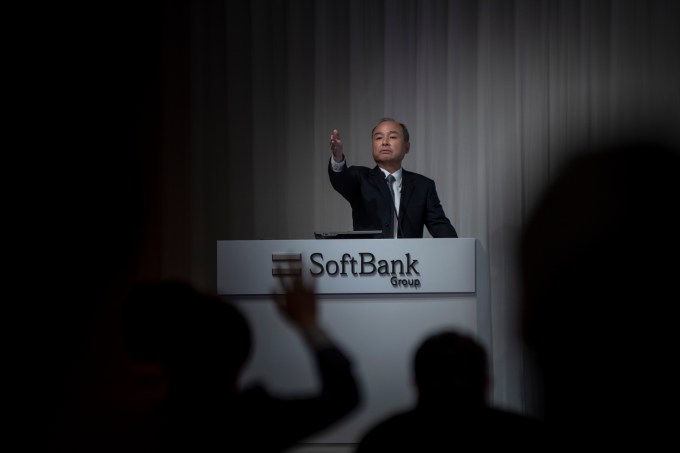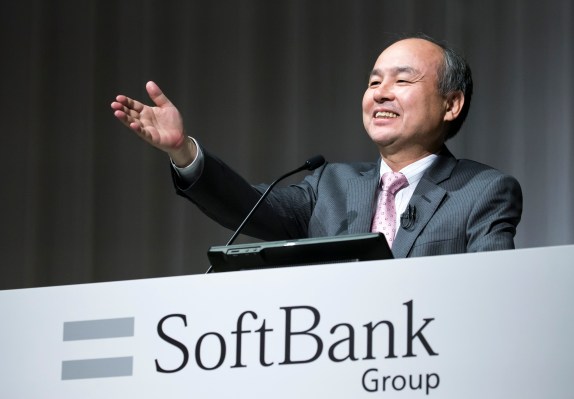Venture capitalists aren’t supposed to make their portfolio companies battle to the death. There’s a long-standing but unofficial rule that investors shouldn’t fund multiple competitors in the same space. Conflicts of interest could arise, information about one startup’s strategy could be improperly shared with the other, and the companies could become suspicious of advice provided by their investors. That leads to problems down the line for VCs, as founders may avoid them if they fear the firm might fund their rival down the line.
SoftBank shatters that norm with its juggernaut $100 billion Vision Fund plus its Innovation Fund. The investor hasn’t been shy about funding multiple sides of the same fight.
The problem is that SoftBank’s power distorts the market dynamics. Startups might take exploitative deals from the firm under the threat that they’ll be outspent whoever is willing to take the term sheet. That can hurt employees, especially ones joining later, who might have a reduced chance for a meaningful exit. SoftBank could advocate for mergers, acquisitions, or product differentiation that boost its odds of reaping a fortune at the expense of the startups’ potential.

Most well-known is how SoftBank has placed bets covering the global ride sharing market.
- Uber – SoftBank invested as part of $7.7 billion raise for Uber in 2018, plus put in an additional $1.25 billion directly to score a 16.3 percent stake in Uber in 2018, and later moved that investment to the Vision Fund. It also participated in a $1 billion raise into Uber’s self-driving car unit this April ahead of the IPO.
- Didi – Chinese ride hailing giant is said to be receiving $1.6 billion from SoftBank this year, following a $5 billion injection from SoftBank in 2017 and participation in its $4.5 billion 2016 round. It may now own as much as 20 percent of Didi.
- Ola – SoftBank has been a long-time investor in Indian ride hailing startup Ola, joining its rounds of $210 million in 2014, $400 million and $500 million rounds in 2015, and a $330 million round in early 2017. Most recently SoftBank participated in a $1.1 billion raise alongside Tencent for Ola in 2017. But fearing that SoftBank’s stake could rise from 27 percent to 40 percent of Ola, the startup turned down a $1.1 billion funding offer this year.
- Grab – Southeast Asia’s top ride hailing app Grab grabbed $1.46 billion from SoftBank Vision Fund in March. That’s after SoftBank participated alongside Didi in a $2.5 billion raise for Grab in 2017, led a $750 million round in 2016, joined a $350 million round in 2015, and did a $250 million round in 2014.
These investments have created a mess of intertwining conflicts. Uber competes directly with Ola in India. Uber surrendered to Grab in Southeast Asia and vacated the market in exchange for a 27.5 percent of Grab but could face off with it if they both expand to the same countries. Grab competes with Didi in Thailand, China, and other nations in Asia. Uber China was sold to Didi for a 17.7 percent economic interest while Didi invested $1 billion in Uber. But they’re now competing in Uber stronghold Mexico,and Didi plans to expand to South America where Uber drives.

Photo by Alessandro Di Ciommo/NurPhoto via Getty Images
What’s clear is SoftBank sees so much potential in ride sharing that it’s willing to dump cash into all the biggest players. This way, it doesn’t matter who conquers the contested international markets outside of the US, India, and Asia — SoftBank always wins. And through its connections across the industry, it could push for more mergers and surrenders that would cut costs at the rivals since they won’t have to vy for drivers and passengers via marketing and bonuses or discounts. Those deals might favor one portfolio company or another but SoftBank succeeds either way.
This strategy means it doesn’t have to perfectly pick the winner like most VCs. It’s much less risk to just pick markets that seem inevitable. There’s no foreseeable future where people don’t need quick ways to get around their city,
The question is why startups would put up with SoftBank. This isn’t a trend restricted to ride hailing. SoftBank plays a similar game to a lesser extent in a slew of other tech verticals:
- Food Delivery – SoftBank has also funded an army of Uber Eats competitors. It led a huge $565 million round in US meal deliverer DoorDash in 2018, and its Vision Fund joined February’s $400 million round. Last month SoftBank and the Vision Fund invested $1 billion into South American meal and grocery delivery app Rappi. And in India SoftBank had already led a $62 million round for India’s competing online supermarket Grofers and followed that up by leading a $200 million round for Grofers this year.
- Insurance – SoftBank has invested in insurance aggregator Policybazaar, and full-stack insurance companies Lemonade in the US and Zhong An in China.
- Autonomous Vehicles – Beyond the Uber self-driving unit, SoftBank has backed direct competitor Cruise Automation that’s owned by Ford, autonomous commercial vehicle tech company Nauto that clashes with Uber Freight, and autonomous public transit startup SB Drive.
- Ecommerce Platforms – SoftBank’s Vision Fund already saw its first exit with the sale of its stake in Flipkart, an Indian rival of Amazon, to Walmart for about $4 billion. It also backs South Korean commerce platform Coupang, India’s Paytm Mall, and Indonesia’s Tokopedia. Those could all end up competing for the Eastern markets.
- Travel Experiences – SoftBank has funded both Chinese tourist attraction booking app Klook that operates across China as well as a European version of the same service called GetYourGuide.
- Car Sales – Chinese online used car trading platform Chehaoduo is backed by SoftBank, as is Europe’s equivalent AUTO1 Group.
So how does SoftBank keeping getting into these rounds given its proven track record of backing competitors? Because it has so much damn money.

For late stage startups seeking tons of capital to propel their growth as they head for IPOs, no investor can write larger checks than SoftBank. Instead of having to go through the hassle of pitching and diligence with a bunch of different funds to cobble together a big round, SoftBank can get them the cash they need from a single source. That gives it serious leverage that overshadows the concerns about its conflicts of interest.
If a late-stage startup declines to take SoftBank’s money, that just decreases the same worries of their rivals who then become more likely to accept the investment giant’s funding. The first startup could suddenly find themselves being outspent by their competitor. The fear of that situation compels the first company to get into bed with SoftBank. And when SoftBank does enter a new market with an investment, other companies in the space race to ask for it to fund them too. The choice is between no conflict and no capital, or conflict and capital. Most founders will choose the latter.
Until more sovereign wealth funds or massive corporate venture arms enter the growth funding market, SoftBank can get away with this. And if a few of the spaces it’s bet across pan out, it will further prove it can provide juicy returns while putting huge amounts of money to work. Apple, Foxconn, Qualcomm, and funds associated with the Saudi Arabian and UAE governments already trust SoftBank to invest their holdings. SoftBank almost acts as an ETF of top late-stage startup categories, and investors typically have no problem with ETFs investing in multiple competitors.
If all its leverage pays off, even more LPs will line up to throw in with SoftBank. As its mass grows, SoftBank’s gravitational field will only grow stronger.

